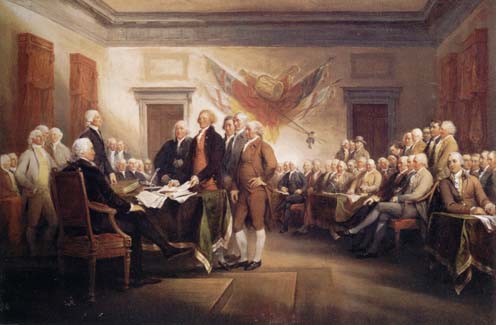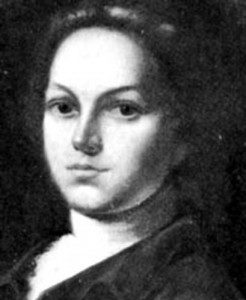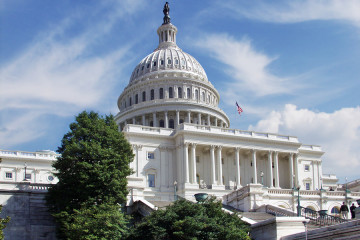Those Who Stood Up and Signed: Part 10

I still remember how our Social Studies in high school drilled into our minds how the signers of the Declaration of Independence were risking their lives signing that document. That they were, yet they were not going to allow themselves to be bullied to by any music celebrity, actor, anyone who considered themselves “royalty”, or anyone regardless of their religious beliefs, sexual preferences, country of origin or gender.
Much like their world, in today’s world, standing up for a certain political view can get you seriously injured or killed. Neither side has a monopoly on peace or love. If you dare defy an anti-Trump protester one can get seriously hurt, injured, tortured on Facebook, or killed. The events in Charlotte, NC have shown us that that evil organization, the KKK is still active too.
I want us to better understand these 56 men who were willing to risk everything for their country. So, in the following weeks, I am going to tell you about them, in alphabetical order mostly. I am not sure how many weeks it is going to take. I guess it will be based on how much I can actually find out about them as individuals.
Most of the biographical information will be taken from The Society of the Descendants of the Signers of the Declaration of Independence which gives extensive bios of each of the signers. Here, I shall highlight some of the parts of their lives that showed their character and spirit.
 Thomas Nelson Jr. (12/26/1738-01/4/1789) was a son of a wealthy mercentilist in Virginia and it was Virginia that he represented at both the first and second Continental Congresses. He attended Eton and Trinity College at Cambridge. He married one Lucy Grymes. He married well. “Through her mother’s family, Mary Randolph, Lucy was the cousin of many of the founding fathers who served with her husband including Peyton Randolph, Benjamin Harrison, Carter Braxton, the Lee brothers and Thomas Jefferson.” He was (like his cousins-very supportive of independence and organized a mini-Tea Party in Yorktown. He was appointed to many positions, including Colonel of a Virginia infantry regiment, congress, and Governor of Virginia. His family and self-made fortunes were destroyed in the war and he was never compensated by the United States for the amount he gave. He died at 51 living in his son’s house in Hanover County Virginia.
Thomas Nelson Jr. (12/26/1738-01/4/1789) was a son of a wealthy mercentilist in Virginia and it was Virginia that he represented at both the first and second Continental Congresses. He attended Eton and Trinity College at Cambridge. He married one Lucy Grymes. He married well. “Through her mother’s family, Mary Randolph, Lucy was the cousin of many of the founding fathers who served with her husband including Peyton Randolph, Benjamin Harrison, Carter Braxton, the Lee brothers and Thomas Jefferson.” He was (like his cousins-very supportive of independence and organized a mini-Tea Party in Yorktown. He was appointed to many positions, including Colonel of a Virginia infantry regiment, congress, and Governor of Virginia. His family and self-made fortunes were destroyed in the war and he was never compensated by the United States for the amount he gave. He died at 51 living in his son’s house in Hanover County Virginia.
William Paca (10/31/1740-10/13/1799) ‘s history is largely unknown due to a fire which consumed many documents containing his history in 1879. However it is known that he came from a family of wealthy land-owners and farmers, sort of. His great-grandfather came from Europe without a penny and was an indentured servant. But when the man he was indentured to died, he married the man’s wife and became wealthy. This was passed down to William’s grand-father and father. However, William did not inherit any of it as he was not the first-born. Instead, he had a career in law. He went to university in London and the College (University, later) of Pennsylvania. He started his practice in Annapolis and was good friends with Samuel Chase. He married into a good family and got involved in colonial government, representing Maryland at the Continental Congress. As any good Quaker, he was vehemently opposed to a strong centralized government, and advocated strongly for individual and states’ rights. However, he finally signed the Constitution as well.
“William Paca was, in the words of Benjamin Rush, ‘beloved and respected by all who knew him, and considered at all times as a sincere patriot and honest man.'”
Robert Paine (03/11/1731-05/12/1814) was a man who came from a powerful family, but it did not help him one bit. He was a descendent of William the Conqueror and Charlemagne. His father was a famous preacher who left the ministry to go into trade. However, his father lost it all in 1749. Robert Paine was either going to be a self-made man or nothing. He went to Harvard and preached at a church for money. He then started studying the law. He was married at the age of 35. As a lawyer, he prosecuted the soldiers guilty of the Boston Massacre, while John Adams defended them. Though he lost, he became very involved with and supportive of the cause of independence. While attending the Continental Congress and representing Mass. he wrote,
Thus the issue is joined; and it is our comfortable reflection, that if by struggling we can avoid the servile subjection which Britain demanded, we remain a free and happy people; but if, through the frowns of Providence, we sink in the struggle, we do but remain the wretched people we should have been without this declaration. Our hearts are full, our hands are full; may God, in whom we trust, support us.
He was highly involved in state and local government before, during, and after the war. He was also highly involved in women’s rights and affairs. In John Trumbull’s famous painting of the signing, Robert Paine is “…toward the rear of the chamber, in a row of ten seated figures, Robert Treat Paine, in a dark coat, is the sixth seated figure to the left of John Adams.”Considering he had a contentious relationship with John Adams, this the perfect place for him!
Romans 12:2 Do not be conformed to this world, but be transformed by the renewal of your mind, that by testing you may discern what is the will of God, what is good and acceptable and perfect.
————————————————————W.







No Comment